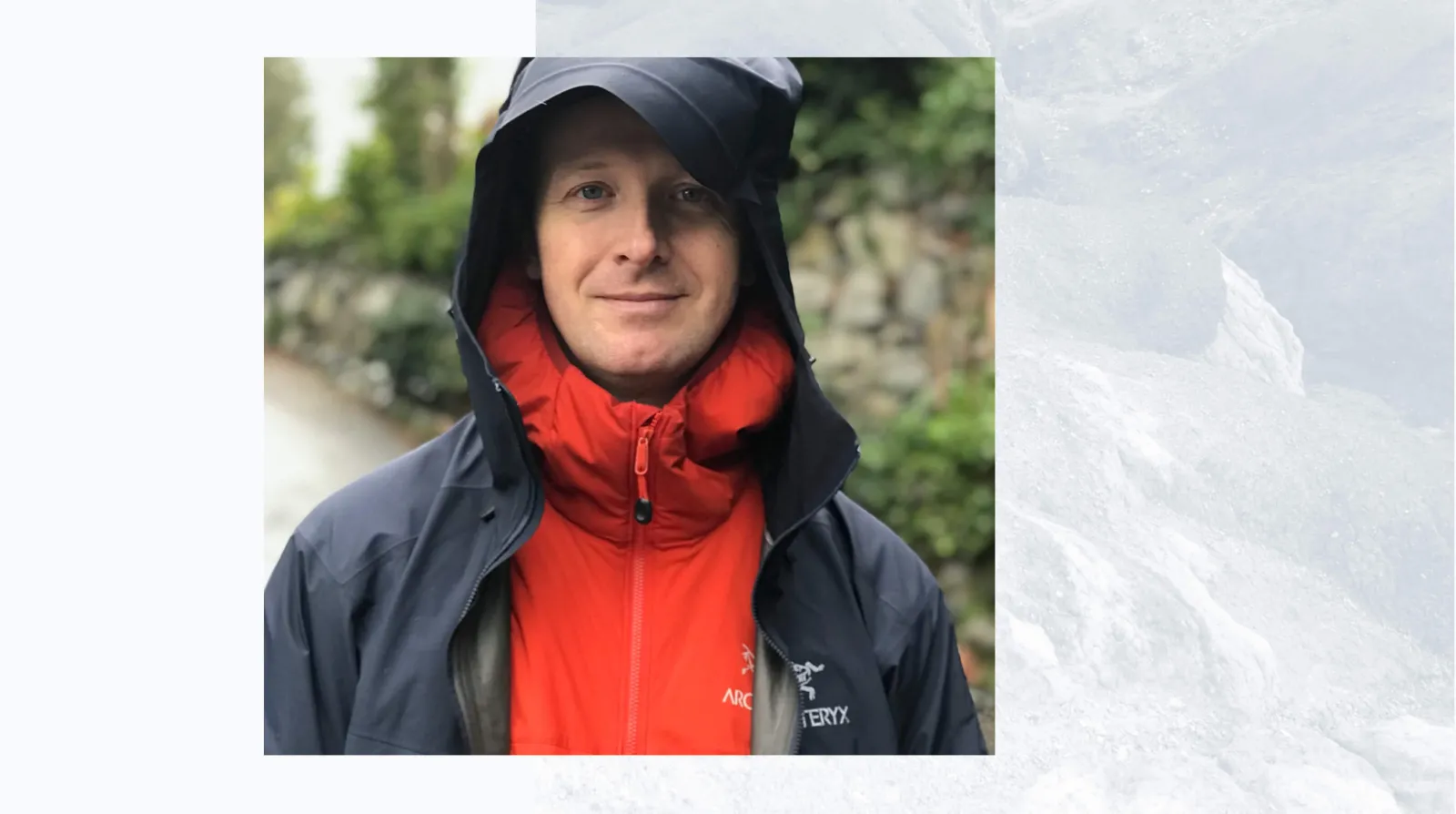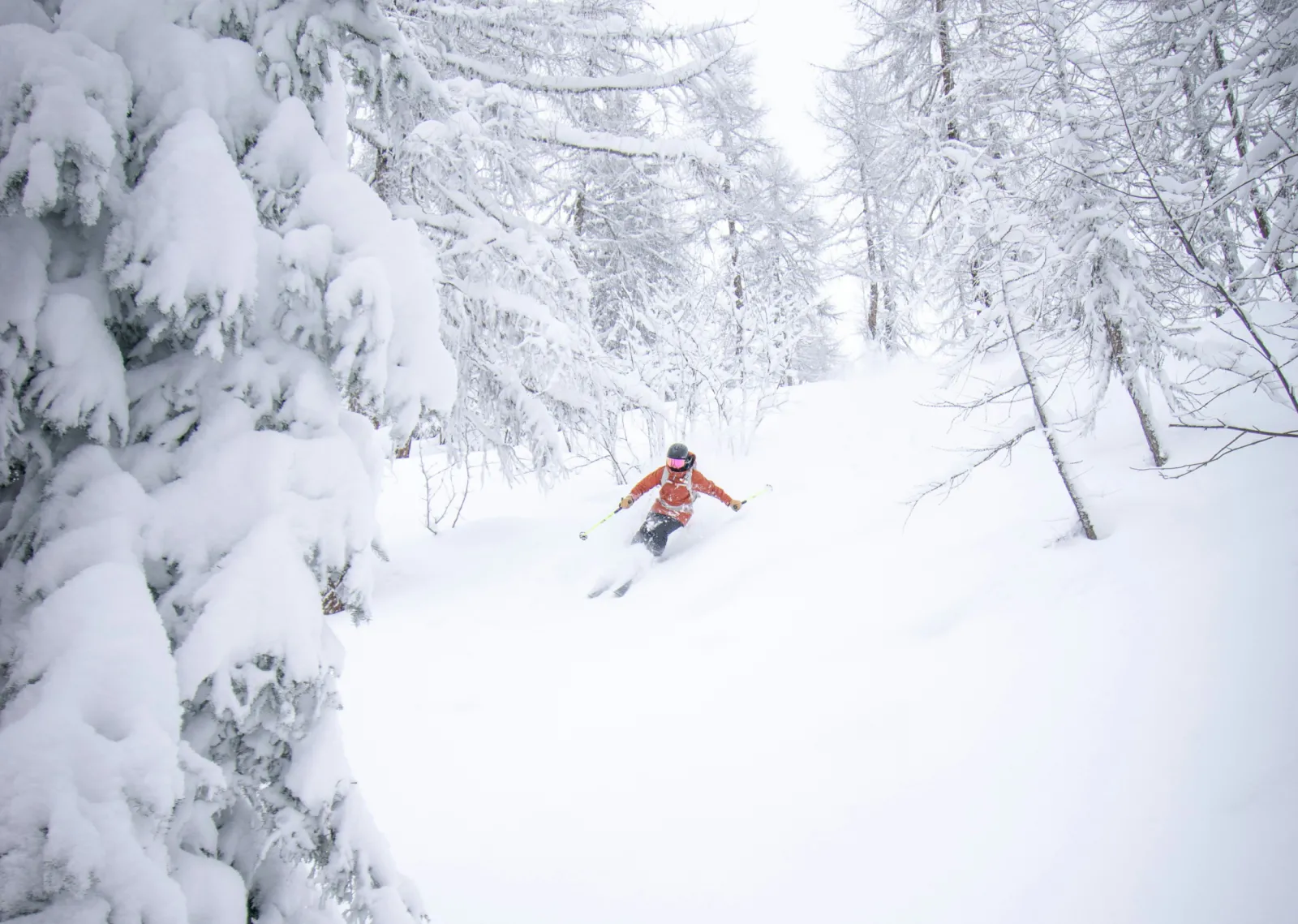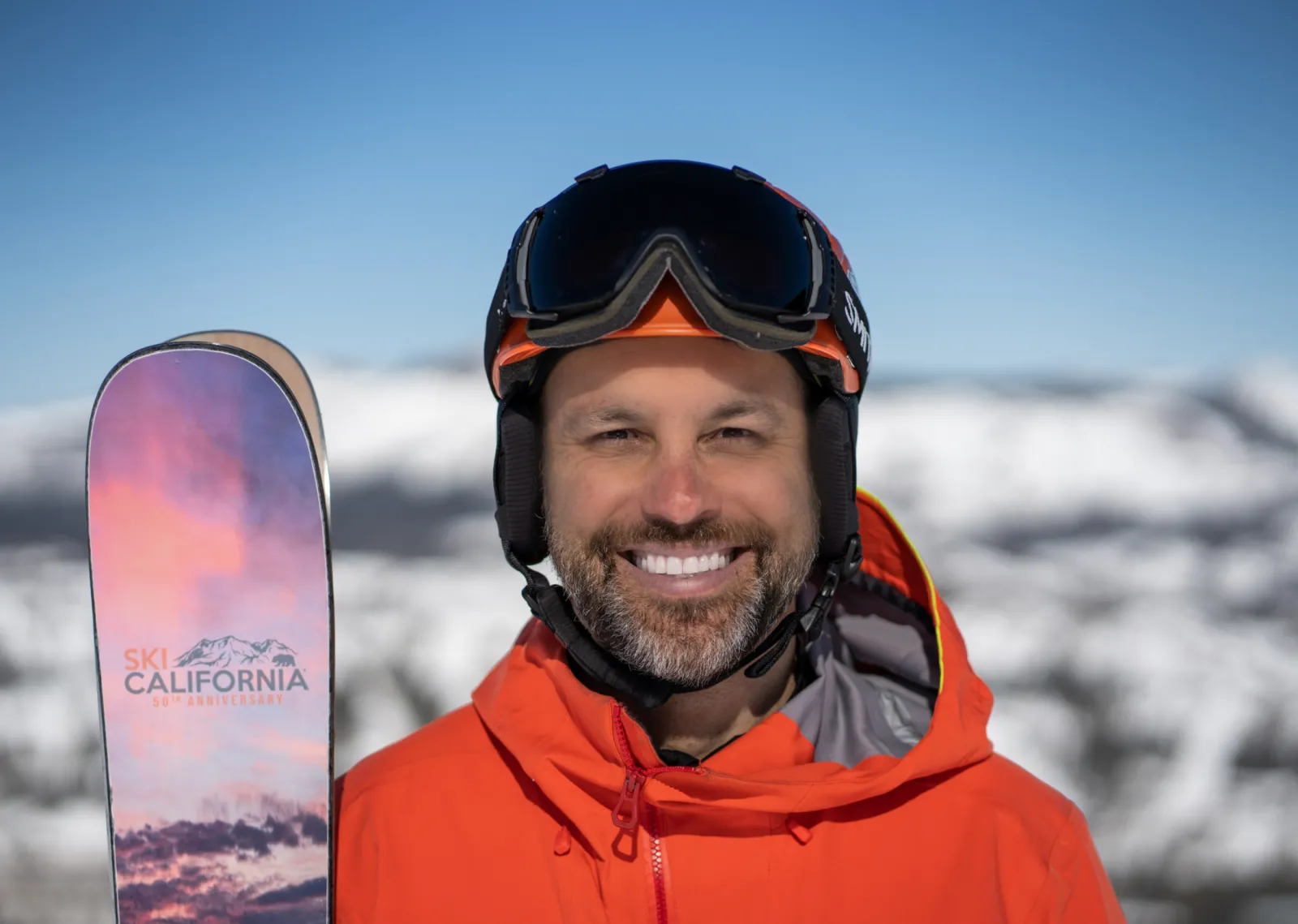When worlds collide, with Arc’teryx Creative Director Cooper Gill
Cooper Gill represents the intersection of the urban and the natural. Raised in the suburbs of New York City and having cut his artistic teeth in the city of Philadelphia, he now brings that contrasting world paired with his passion for the outdoors to Arc’teryx where he serves as its Creative Director.
Knowing that the intersection of streetwear/urban and the outdoors continues to emerge, Origin Outside sat down with Cooper to get his take on it, and how Arc’teryx is reacting to it.
Felix: So how did you end up at Arc’teryx? What’s your story?
Cooper: For years I was working in the agency world both large conglomerate (WPP) and boutique (RANGE). It was there that I worked for outdoor brands like The North Face, Arc’teryx, Nike, adidas, as well as other non-endemic brands. Tom Duguid (previous Arc’teryx CD), was retiring and there were a couple contacts at Arc’teryx that I knew that encouraged me to apply so I did and from there the process brought us to Vancouver.
Felix: Well we’re happy to have you up here. So i'd love to hear more about how this emergence in streetwear adopting Arc’teryx and other outdoor brands into their style is affecting you. When I contrast it with the background you come from, that artistic Philly scene, I wonder if that was some of the reason you were brought on? To bring that side of the equation into things?
Cooper: I wouldn’t say specifically streetwear, but more in that larger lens in terms of that broader consumer base of urban and those that live in the city. There’s brands like Nike and Patagonia that do such a great job staying relevant to their endemic base while also growing into these new segments and there’s a ton of potential for Arc’teryx to do the same without alienating our core base. Personally, it’s fun because Tom Duguid was the local crusher with all the pedigree, and I think a lot of people assume I’m just the urban city guy and I don’t do all the sports - even though I do. I walk this line where I’m still skateboarding and have all my friends in New York, but also love the outdoor sports. And I guess it’s true that lends itself to this widening lens we’re seeing.
Felix: Where do you see that lens leading to? In terms of the industry, not just Arc’teryx.
Cooper: Well of course it’s going to mean more people outside. Which is great. And the lifestyle is primed. People are wearing outdoor gear everyday now - it’s become part of the visual vernacular of society. So when you see these worlds collide... a great example of this is Aritizia’s super puff. That’s going to create a huge headache for outdoor brands. They’re going to come at this from a totally different approach of style over technical features where outdoor brands can’t keep up with. My point is it’s in the vernacular now, and that can have momentum behind it. So if people are enjoying the gear, and we can spread the message better that you don’t have to be some rad alpinist to be allowed to wear outdoor gear, it’s a good thing. There should be just as much respect walking in the rain. Overall, more people outside is better because then we follow its logical conclusions and it leads to more stewardship, healthier people, and more inclusivity for our industry.
Felix: I’d love to know more about Arc’teryx’s perspective on its intersection with fashion and the urban worlds. Suddenly Virgil Abloh (well known designer for Off White and LVMH) is wearing an Alpha SV on a runway and incorporating it into his shows. What are your thoughts on that? I imagine it occurs organically, but are you trying to lean into these things more now?
Cooper: Personally, I love it. Again, a wider lens leads to more participation and more stewardship, so I see nothing but good things coming from it. I genuinely love the “outside perspective” of our brand and our industry. Regardless of the criticism for it from the core outdoor crowd, like, I’ve just never seen anything like that in terms of the colour and texture juxtaposition. Then you start to add on the earned media from something like that…. and it just blows my mind and I’m so stoked. If that was manufactured, that would be one of the coolest marketing campaigns of all time.
Felix: When that happened the first thing I did was message you and ask whether that was planned or not. I think it’s so cool. You mentioned that something like that leads to, eventually, more people getting outside. So when something like that happens, I’m just trying to figure out where that leads us as an industry. Of course a certain amount of people will just go out and buy the jacket Virgil wore and that’s that. But I wonder if outdoor gear trickling into these new environments will lead to an uptake in participation by people who traditionally have never been exposed to it?
Cooper: I think it’s all positive, for sure. As stewards of the industry and the ones making the decisions on how money is spent, as long as we’re all cause oriented, I think that paired with this widening lens I’m talking about is a net positive for our industry and for society. The more people get outside, the better the world is.
Felix: Speaking of intention and cause, a lot of these moves from fashion towards higher quality more premium brands goes against the whole concept of fast fashion that brands like Zara perpetuate. Do you think this is an indication of a move away from that fast fashion world?
Cooper: No, I don’t think it’s going away. No. But I do think people will be choosier about it. I think those with more disposable income to spend will make more intentional decisions on how they purchase, because they have the ability to. But there’s always going to be that “squishier” consumer where price is the ultimate deciding factor, which is unfortunate for a variety of societal reasons. But it comes back to brands trying to do the right thing and that aligns with the overall reckoning we’re seeing in society now. And that’s obviously something we’re trying to address too. Oh man, we’re getting heady now.
Felix: Hah. Well let’s talk about the nuts and bolts of what you’re up to at Arc’teryx right now. What’s your creative goals there? Where’s your head at creatively these days?
Cooper: Yeah well, I’m only the second creative director Arc’teryx has had. So that’s huge shoes to fill. Tom is the man. And the aesthetic he put forward for so long was so monumental and incredible. It made the whole industry sit up straight for so long. So as he started to come off overseeing things, creative people being creative… started to want to do everything and the kitchen sink all at once. So a lot of my time has been spent so far focusing on getting things hyper-aligned creatively. There’s a lot in the backend we’ve been working on and are now moving to the expression of that externally, and are in our third season out now under my creative direction. But hey, I didn’t change the logo! So there’s that. Normally when you get a new CD they love to change everything. But man, that’s such a good logo. I could never change it. All that to say, we’ve been spending a lot of time better figuring out who we are from a brand perspective, not just a product perspective. Which is great.
Felix: Has focusing more on brand than product manifested in bringing in more of a human element to things? That’s what I’m seeing when I browse new Arc’teryx creative.
Cooper: Yeah totally. I wanted people to realize that real people are using this gear, and it’s not just some Gore-tex cyborg. I just want to capture people being in the moment more often. For example, spending more time on sound design, than a soundtrack. To hear the crisp noises of people moving in the mountains. We just want people to see themselves more in it and bring the human condition into it better.
Felix: So with that baseline refreshed, how do these emerging trends affect Arc’teryx, is that where you're trying to position the brand to lean into it better?
Cooper: Hmm, well I would say I don't want us to fall into reacting to trends. I want us to be in a place of leadership, not just following trend chasing. I want us to be the brand our competitors are chasing.
Felix: It’s when brands start jumping into every trend that emerges that you begin to lose yourself.
Cooper: Exactly. But I mean there’s a lot of cool stuff happening out there. Like we have a Tiktok account, it only has 30 followers, but it’s a ton of fun. We’re still ensuring we’re on the forefront of things.
Felix: Letting the trends come to you, and not chasing them. I think we can leave it at that. Thanks Cooper.
Check out our interview with Dan Walker, Arc’teryx’s Community Impact Manager on How Your Brand Can Generate Positive Social Impact.
About Origin Outside
Origin is an outdoor-focused, digitally driven creative, content and marketing agency. Founded more than 20 years ago, the agency has worked with a multitude of prominent outdoor brands such as Whistler Blackcomb, L.L. Bean, lululemon, Smartwool, The North Face, and many more. With offices in Montreal and Whistler, as well as a US subsidiary based in Vermont, Origin provides a bilingual and suite of capabilities to the outdoor brands it helps succeed and grow in both Canada and the US. Subscribe to Origin’s “Insights On The Outdoors” monthly newsletter at https://www.originoutside.com/newsletter or contact us online.
See our Origin Outside produced film Spearhead: Pushing the Boundaries of BC’s Backcountry, presented by Arc’terex and directed by Seth Gillis.









